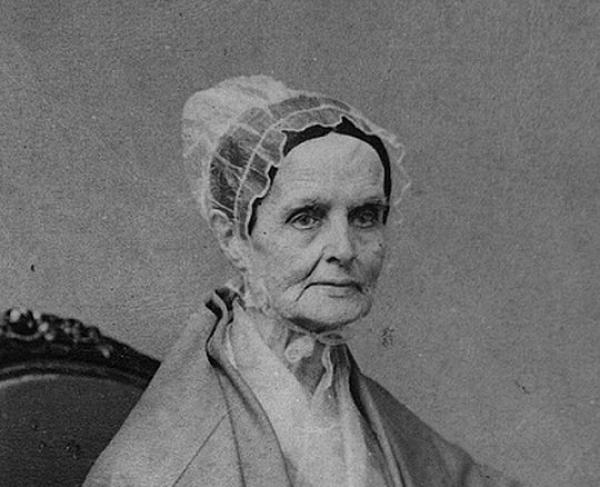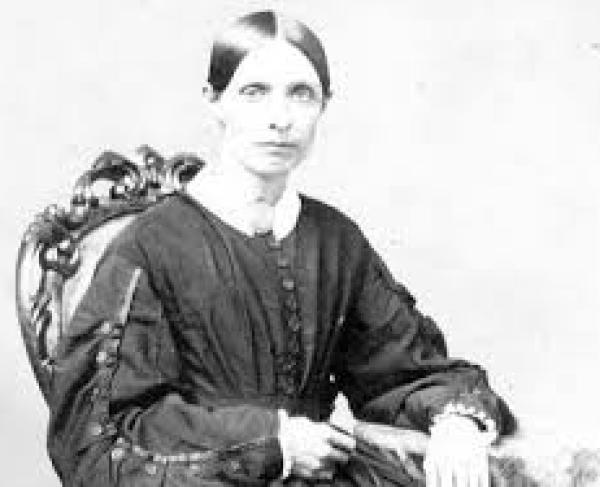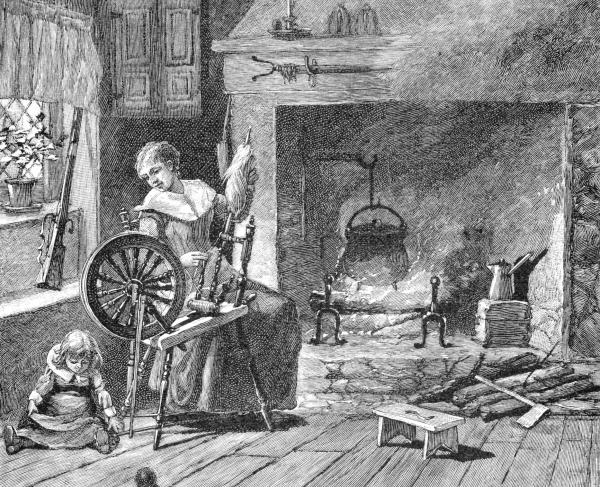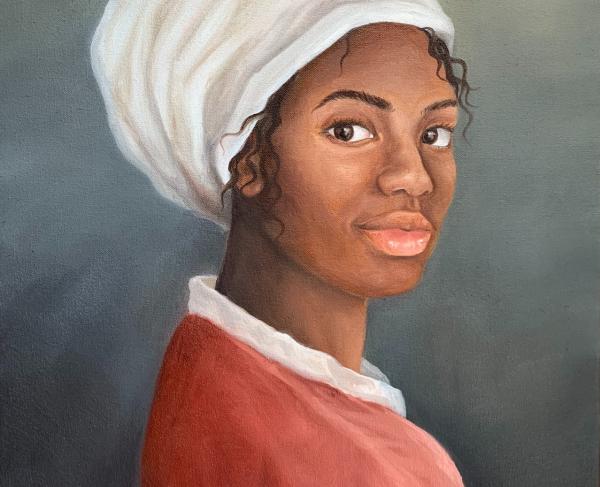Lucretia Mott

Lucretia Coffin Mott, abolitionist and early women’s rights activist, was born on January 3, 1793 to a Quaker family in Nantucket, Massachusetts. As a child, Mott attended a Quaker boarding school, where she solidified her commitment to the Quaker belief in the equality of all people before God. This belief led her to become a passionate abolitionist and Quaker preacher, despite social pressures against women speaking in public. In 1833, Mott helped found the Philadelphia Female Anti-Slavery Society, an interracial, female chapter of the all-male American Anti-Slavery Society. Five years later Mott’s society hosted the second Anti-Slavery Convention of American Women, provoking retaliation by angry mobs. Undeterred, Mott and her husband attended the World Anti-Slavery Convention in 1840, where she was again restricted from participating due to her gender.
While in London, Mott met Elizabeth Cady Stanton, a fellow abolitionist who had also been rejected from the convention. Inspired by the lack of inclusion, Stanton and Mott promised to organize a women’s rights meeting upon returning to the United States. True to their word, eight years later the two women held the Seneca Falls Convention in Seneca Falls, New York. Despite its controversial nature, the convention attracted hundreds of people, including Frederick Douglass. At the convention, Mott presented the “Declaration of Sentiments,” which included twelve resolutions, including property rights, the right to divorce, increased access to education, and the right to vote. The Declaration was passed on the second day of the convention, after a day of discussion and editing, and signed by 100 men and women. Its most controversial piece, voting rights, divided the convention; however, it was ultimately included in the Declaration and became the foundation of the women’s suffrage movement.
Mott continued to support both women’s rights and abolitionism throughout the period leading up to and during the Civil War. An opponent of the Fugitive Slave Act of 1850, she and her husband opened up their home to slaves escaping on the Underground Railroad. She also continued to write and lecture on women’s rights, publishing Discourse on Women in 1850, and attending various women’s rights conventions. As a Quaker, Mott opposed conflict and spent most of the Civil War assisting the Quaker Friends Educational Association in founding the coeducational Swarthmore College, which opened for class in 1869. After the war, she became president of the American Equal Rights Association and helped to organize the Free Religious Association.
While Mott celebrated the Civil War’s role in ending slavery, she and many of her fellow women’s rights advocates condemned the fourteenth and fifteenth amendments for not including women in its expansion of voting rights and citizenship. Debate among women’s rights advocates over whether to support the fifteenth amendment ultimately led to a split in the movement, with Mott and others opposing it joining the National Woman Suffrage Association. Mott continued to be an active supporter for women’s rights and peace through the last years of her life until her death on November 11, 1880.


